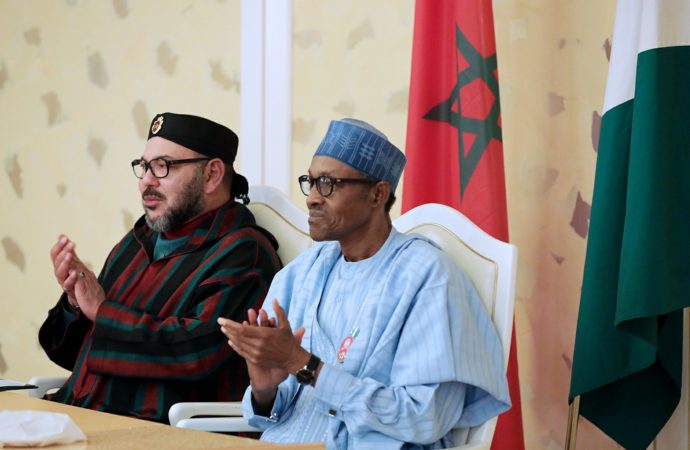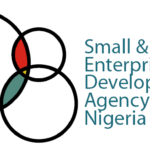Nigeria and Morocco on Monday in Rabat, signed agreements with five African countries towards realising the Nigeria-Morocco gas pipeline project.
According to a tweet by the Nigerian National Petroleum Company Limited (NNPC), the agreements were signed between Ghana, The Gambia, Guinea, Guinea Bissau and Sierra Leone, where the gas pipeline is routed across.
Already Nigeria has an underwater gas pipeline from Brass in Niger Delta to Lagos and to Ghana. The project will take it from Ghana through the five countries up to Morocco.
The pipeline begins from Brass Island (Nigeria) and terminates at North of Morocco, and connects to existing Maghreb European Pipeline (MEP) which is from Algeria (via Morocco) to Spain.
2023: Buhari urges army to remain apolitical, uphold human rights
We are not responsible for attack on INEC facilities — IPOB
It will join another trunk at Maghreb European Pipeline (MEP) which is from Algeria (via Morocco) to Spain, reaching Europe and allowing Nigeria with about 200 trillion standard cubic feet of gas to supply to Europe.
Morocco’s oil firm, National Office of Hydrocarbons and Mines of Morocco (ONHYM) executed the pacts’ signing along with Nigeria’s NNPC Ltd.
Recall that in mid-September, 2022, the Group Chief Executive Officer of NNPC, Mele Kyari, announced the signing of pact between Nigeria and Morocco for the takeoff of the project, saying it will create wealth, and improve the standard of living of countries within the African region.
Kyari had said: “Some of the benefits include creation of wealth and improvement in standard of living, integration of the economies within the region, mitigation against desertification and other benefits that will accrue as a result of reduction in carbon emission.”
The Nigeria-Morocco Gas Pipeline (NMGP) Project is an initiative of the Federal Government of Nigeria and the Kingdom of Morocco and was conceived during the visit of King Mohammed VI of Morocco to Nigeria in December 2016.
It will also assist in supplying gas to Morocco, 13 ECOWAS countries and Europe, and integration of the economies of the Sub-region.
During the signing of a previous agreement in 2018, the both countries said the underwater project could take 25 years to finish. More so, Offshore Technology, a global energy player on its website in June 2022 said the project cost is estimated at $25 billion and would transport about 5,400 billion cubic metres of gas annually to Morocco.

 Join Daily Trust WhatsApp Community For Quick Access To News and Happenings Around You.
Join Daily Trust WhatsApp Community For Quick Access To News and Happenings Around You.


